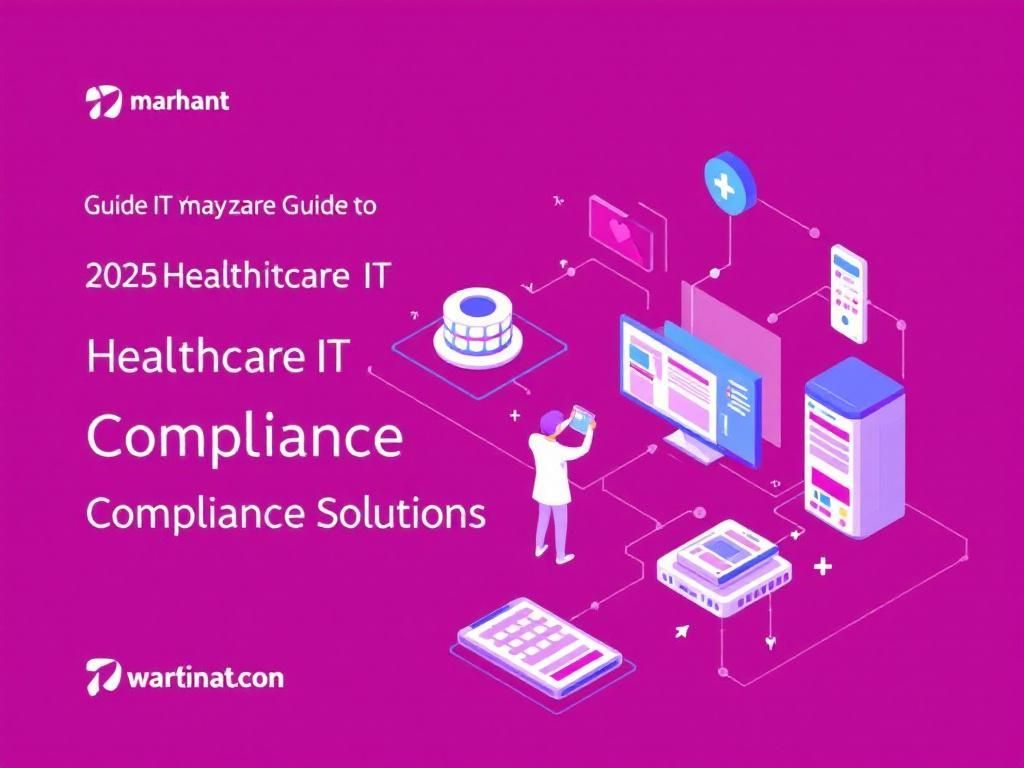The Ultimate 2025 Guide to Healthcare IT Compliance Solutions
Explore the essential compliance solutions for healthcare IT in 2025, ensuring your organization meets all regulatory standards effectively.

In an era marked by rapid technological advancements and an increasing emphasis on data security, healthcare organizations face a challenging landscape when it comes to compliance. The fusion of healthcare and information technology has brought forth a plethora of solutions aimed at ensuring patient data integrity and security while adhering to various regulatory standards. This article delves into the key compliance solutions available for healthcare IT by 2025, exploring the tools and strategies that can help organizations navigate this complex environment.
Table of Contents
The Importance of Compliance in Healthcare IT
Compliance in healthcare IT is crucial for several reasons:
- Patient Trust: Ensuring data privacy builds trust between patients and healthcare providers.
- Legal Obligations: Organizations must adhere to regulations like HIPAA, HITECH, and GDPR to avoid hefty fines.
- Operational Efficiency: Compliance measures often lead to streamlined operations and improved patient care.
- Risk Management: A robust compliance framework helps mitigate risks associated with data breaches and cyber threats.
Key Regulations Shaping Healthcare IT Compliance
Several regulations govern the data practices of healthcare organizations. Understanding these regulations is essential for implementing effective compliance solutions:
Health Insurance Portability and Accountability Act (HIPAA)
HIPAA sets the standard for protecting sensitive patient information. Key provisions include:
- Privacy Rule: Protects personal health information (PHI).
- Security Rule: Sets standards for safeguarding electronic PHI (ePHI).
- Breach Notification Rule: Requires organizations to notify affected individuals of data breaches.
Health Information Technology for Economic and Clinical Health Act (HITECH)
HITECH promotes the adoption of health information technology, reinforcing the principles of HIPAA with stricter enforcement and penalties for non-compliance.
General Data Protection Regulation (GDPR)
For healthcare organizations operating in or dealing with data from the European Union, GDPR mandates strong data protection and privacy controls.
Emerging Compliance Solutions for 2025
As the landscape evolves, several innovative compliance solutions are becoming essential:
1. Advanced Analytics and AI
Artificial intelligence and advanced analytics tools can streamline compliance efforts by automating data monitoring and reporting tasks.
| Technology | Benefits |
|---|---|
| AI-driven Monitoring Systems | Continuous compliance checks and anomaly detection |
| Predictive Analytics | Anticipating compliance risks before they become issues |
2. Blockchain Technology
Blockchain offers a decentralized approach to storing health records, enhancing data integrity and security. Key advantages include:
- Immutable records
- Enhanced patient control over their data
- Improved interoperability
3. Cloud-based Compliance Solutions
Cloud technology is revolutionizing healthcare IT compliance by providing scalable solutions that facilitate data sharing and secure storage.
Features of Cloud-based Solutions:
- Real-time updates and compliance tracking
- Automatic backups and disaster recovery
- Collaboration tools for teams
Best Practices for Healthcare IT Compliance
Adopting best practices is vital for healthcare organizations aiming for compliance:
1. Conduct Regular Audits
Regular compliance audits help identify vulnerabilities and ensure adherence to regulations. Consider employing third-party auditors for an unbiased review.
2. Employee Training and Awareness
Continuous training programs on compliance and data protection for staff can significantly reduce human error-related breaches.
3. Implement Comprehensive Policies
Establish clear compliance policies addressing data use, sharing, and breaches. These policies should be communicated to all employees.
4. Invest in Technology
Utilizing the latest technology tools can automate compliance processes and strengthen security measures. Investing in data encryption, access controls, and monitoring systems is crucial.
5. Foster a Culture of Compliance
Encourage a workplace culture that prioritizes compliance and security, making them integral to daily operations and decision-making.
Future Trends in Healthcare IT Compliance
Looking ahead to 2025, several trends are expected to shape the future of healthcare IT compliance:
1. Increased Use of Telehealth Services
The rise of telehealth will necessitate stringent compliance measures to protect patient information during virtual consultations.
2. Enhanced Data Privacy Regulations
As technology evolves, new data privacy regulations may emerge, requiring organizations to adapt quickly to maintain compliance.
3. Integration of IoT Devices
With the proliferation of IoT devices in healthcare, ensuring compliance across these devices will become increasingly complex and essential.
Conclusion
As the healthcare sector adapts to the digital age, compliance with IT regulations remains paramount. By leveraging advanced technology, implementing best practices, and fostering a culture of security, healthcare organizations can navigate the intricate landscape of healthcare IT compliance effectively. As we approach 2025, staying informed and proactive will be essential to safeguarding patient data and maintaining trust in the healthcare system.
FAQ
What are healthcare IT compliance solutions?
Healthcare IT compliance solutions are tools and services designed to help healthcare organizations adhere to regulatory standards and ensure the protection of patient data.
Why is compliance important in healthcare IT?
Compliance in healthcare IT is crucial to protect sensitive patient information, avoid legal penalties, and maintain trust with patients and stakeholders.
What regulations should healthcare organizations comply with?
Healthcare organizations must comply with regulations such as HIPAA, HITECH, and GDPR, depending on their location and the nature of their services.
How can technology enhance healthcare IT compliance?
Technology can enhance healthcare IT compliance through automation, real-time monitoring, and advanced data encryption, making it easier to meet regulatory requirements.
What are the key components of an effective compliance program?
An effective compliance program typically includes risk assessment, employee training, regular audits, and a clear communication strategy for policies and procedures.
What are the consequences of non-compliance in healthcare IT?
Non-compliance can lead to significant fines, legal repercussions, data breaches, and damage to the organization’s reputation.





